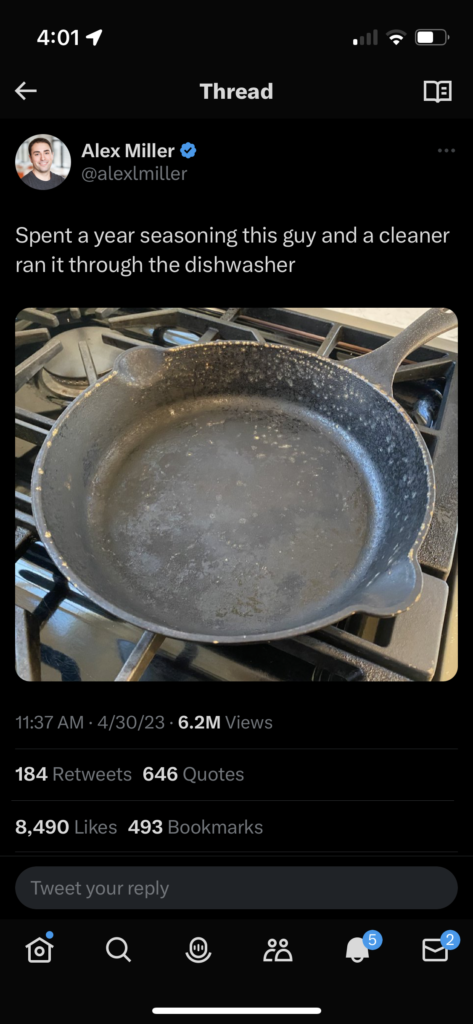Some narrative wars are being fought right right. Who owns the future and who gets to decide on what something is worth? That question is rippling through AI communities and crypto DAOs. And then the Federal Reserve raised another quarter point and Balaji explained probabilistic thinking and it went over everyone’s heads. And the beat goes on.
We are all looking at the consensus making in the market and applying our separate projections onto the great stage of guessing if you think you know what other people think everyone knows. What is common knowledge. Turns out calculus is useful!
You’d think the value of an honest days work would be common knowledge. But labor costs sure have gone up. Or maybe a gallon of milk. Politicians don’t know. How much do you get for a dollar? I’d like to know if you think it has changed. These are things you can evaluate yourself. You do not need a fancy expert. Though sometimes economists on Twitter will answer your questions.
But are we aligned on the measurements and valuations being used? What do you value vs Janet Yellen. I believe we have a right to ask for the people and technologies that run our lives to be accountable.
We have to agree on some collective civilization level norm on what we value and what the boundaries are on what things are worth and how we protect those valuable things.
It’s my personal opinion that we are all performing a bit of chaos magic as we ask that we align on a future that can collectively together build the most aligned consensus of agreement. Maybe it happens at the neighborhood level or maybe it’s a whole state. But we need to agree to some terms.
How gets to do that and how do we enable them? Maybe it’s humans. Maybe it’s humans guiding machines to make us more powerful. I myself believe that machines will need a valuation mechanism to sort priorities on our behalf.
People ask if I’m on team AI or team crypto. AI needs crypto to bridge the many different value sets and marketplaces together. Some of these types of value marketplaces may even be cultural values. That’s the goal of the network state. Align with the state that empowers your values. But then these states will also need to coordinate in various states of mistrust, distrust or if we dare trustlessness.
But aligning on how we govern and what rules we must abide by is a hard problem. We’ve relied on national liberty in America for a good while and it has produced many failures along the way.
But occasionally the utopians win a few rounds. Freedom does indeed reign it just takes a lot of fight. But we work to align as many of us as possible toward a consensus. Nobody said civilization was easy to maintain.
